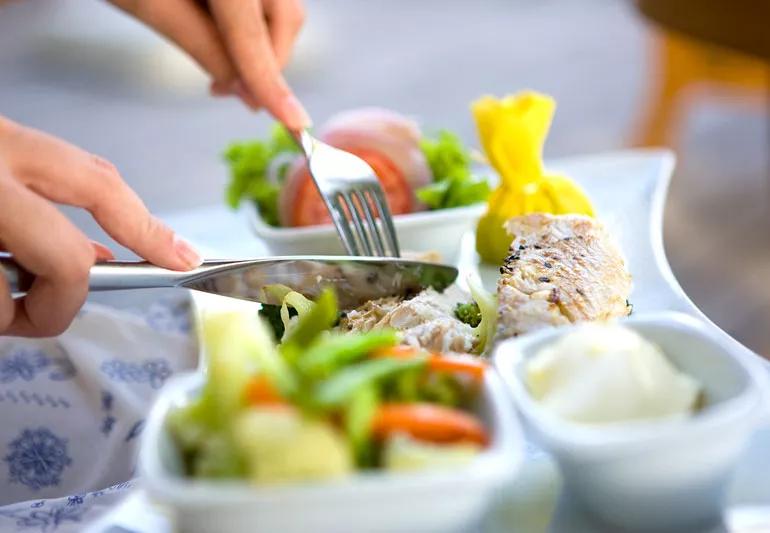How to choose foods with mood-supporting nutrients

If dreary weather or another day of staying home during the COVID-19 pandemic has you feeling a case of the blahs, what you choose to eat can make a difference.
Advertisement
Cleveland Clinic is a non-profit academic medical center. Advertising on our site helps support our mission. We do not endorse non-Cleveland Clinic products or services. Policy
Certain foods and nutrients help your brain to make chemicals that can impact your mood, attention and focus, while other foods can zap your energy, says registered dietitian Sarah Thomsen Ferreira, MS, MPH, RD, IFNCP.
The best meal to enhance your mood is one that combines complex carbohydrates with lean proteins and colorful produce. For example, complex carbohydrates from whole foods (like sweet potatoes, rolled oats, beans and quinoa) can increase availability of the feel-good chemical serotonin in your brain.
Protein consumption (from foods like fish, beef, chicken, turkey, tofu, beans, eggs and unsweetened yogurt) has been linked to higher levels of dopamine and norepinephrine, which are brain chemicals that play a role in your mood, motivation and concentration.
Fruits and vegetables are high in vitamins, minerals and antioxidants that nourish your body and have also been shown to boost happiness.
“The Mediterranean diet has gained significant attention for decreasing symptoms of depression, with key components being increased intake of vegetables, fruit, omega-3-rich fish, nuts, legumes and olive oil,” Ferreira says. Consuming a diet based on whole, unrefined foods with enough protein, healthy fat and fiber also helps to keep blood sugar stable after meals, which has been linked to improvements in mood and anxiety.
Advertisement
Over time, eating foods without a lot of nutrients can lead to nutritional deficiencies. Nutrients important to a healthy mood include:
Examples of meals which combine protein, fat, fiber, colorful produce, mood-supportive nutrients and whole-food carbohydrates include:
Meanwhile, avoid foods that could leave you feeling mentally drained. “Some foods with low nutritional value may give you a quick energy boost but could leave you with low energy and mood later on,” Ferreira says. Those include:
If you’ll be making changes in your diet, be patient. It may take two to three weeks to see an improvement in your mood.
Advertisement
Learn more about our editorial process.
Advertisement

Burnout is often driven by long periods of stress without time to recover — but practicing self-care and creating work/life boundaries can help

If you’re torn between contradictory beliefs, questioning your decisions or feeling ashamed about your choices, you may be experiencing cognitive dissonance

This theory of human motivation says people seek to meet their needs in a predictable order

This trendy practice may boost your physical and mental health — but done incorrectly, it could make things worse

Only some people experience autonomous sensory meridian responses, but it can be beneficial to those who do

You can address negative thinking by reframing the situation, asking for help when you’re stuck and giving yourself some grace

The power of positive thinking can influence your physical, mental and emotional health

Speaking, thinking or writing these affirming statements can help boost confidence, reduce anxiety and overcome self-doubt

Wearing a scarf, adjusting your outdoor activities and following your asthma treatment plan can help limit breathing problems

Your diet in the weeks, days and hours ahead of your race can power you to the finish line

When someone guilt trips you, they’re using emotionally manipulative behavior to try to get you to act a certain way